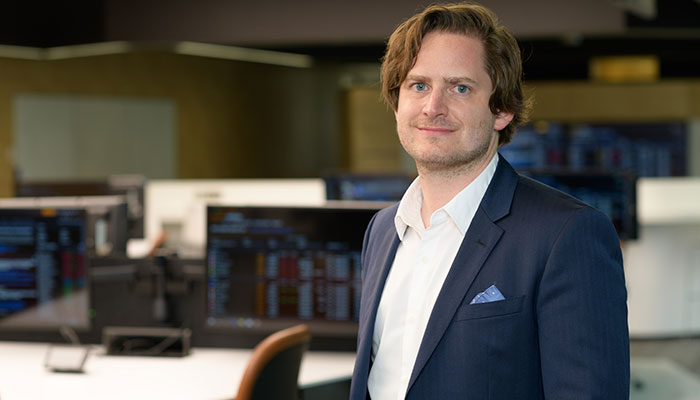Australian businesses can lift their poor record of innovation with a bold strategy of “learning by doing” - constantly testing new ideas rather than sticking rigidly to less flexible strategies, according to new research published in the Journal of Management.

Ralf Wilden, Professor of Strategy and Innovation and co-founder of the Macquarie Business School’s Innovation, Strategy & Entrepreneurship Research Centre, says his study demonstrates the advantages of taking an opportunistic approach to business strategy, particularly in a dynamic environment.
Such rapid innovation helps an organisation learn quickly about the strengths and weaknesses of its products and enables it to move fast to address problems.
It has long been understood that this rapid innovation cycle works well for start-ups which are nimble enough to rapidly shift strategies and continually tinker with their products until they find what works.
The paper, co-authored by Professor Wilden and research colleagues, shows “learning by doing” is also effective outside of the start-up sphere.
After examining the records of 5000 companies over a 20-year period, they concluded that where large organisations operate in conditions of market uncertainty, and where technological change is rapid, companies will benefit from an entrepreneurial “learning by doing” approach.
Large companies are in a situation similar to start-ups when they operate in these turbulent conditions.
“There are more market opportunities emerging all the time. These small steps, being quick in the market, learning from them and improving, can be very, very beneficial,” Professor Wilden says.
Maybe it is really time for organisations to rethink their approach to strategic planning, and product and service innovation.
He explains the “learning by doing” strategy by using the example of apps which go through upgrades. App owners frequently upgrade to new versions, trying out new features on a small scale to learn what works and what doesn’t. In a rapidly changing market where technological change is continual, this works better than saving the changes for the occasional big upgrade.
“It helps the organisation to learn quickly rather than wait a whole year until they actually launch another app version,” Professor Wilden says.
The “learning by doing” approach also works for large companies operating in a stable environment. Here, in the absence of a changing market, companies can make their own opportunities, “trying to drive and shape the market” by making small changes to find out what improves performance and what doesn’t, he says.
Middle ground still needs careful planning
But while “learning by doing" is effective at the two extremes – a very unstable market and a very stable one – it fails when the situation is somewhere in the middle.
“There is not enough turbulence or uncertainty to benefit from learning by doing. And there is not enough stability to actually learn from creating the opportunity,” Professor Wilden says. In these circumstances he advocates a traditional “careful planning” approach to business strategy.

New strategy: Professor Ralf Wilden, pictured, says an analysis of 5000 companies in his research found nimble business innovators 'learn by doing'. Photo Jesse Taylor
Professor Wilden believes the findings have clear implications for Australian businesses, which have long had difficulty translating innovative ideas into better products and higher profits. The Global Innovation Index 2024 places Australia 18th in the world in the level of innovation in its economic input, but in a much worse position, ranked at 30th, when it comes to innovation in economic output.
“We are okay on (the inputs of) human capital and research, but low on knowledge and technology output,” Professor Wilden says.
- AI chatbots outsmart scammers: world-first pilot with Australia's largest bank
- Why some people deserve an age pension before others: new study
He says many Australian companies are still “quite traditional”, taking a very long-term view in their financial modelling and scenario planning which doesn’t allow room for the small but rapid changes in strategy needed for a “learning by doing” approach.
“Maybe it is really time for organisations to rethink their approach to strategic planning, and product and service innovation,” he says.
Professor Ralf Wilden is Associate Dean Research (Training & Performance), Professor of Strategy & Innovation and co-founder of the Macquarie Business School’s Innovation, Strategy & Entrepreneurship Research Group.



